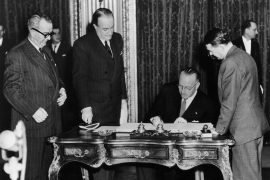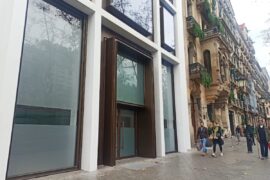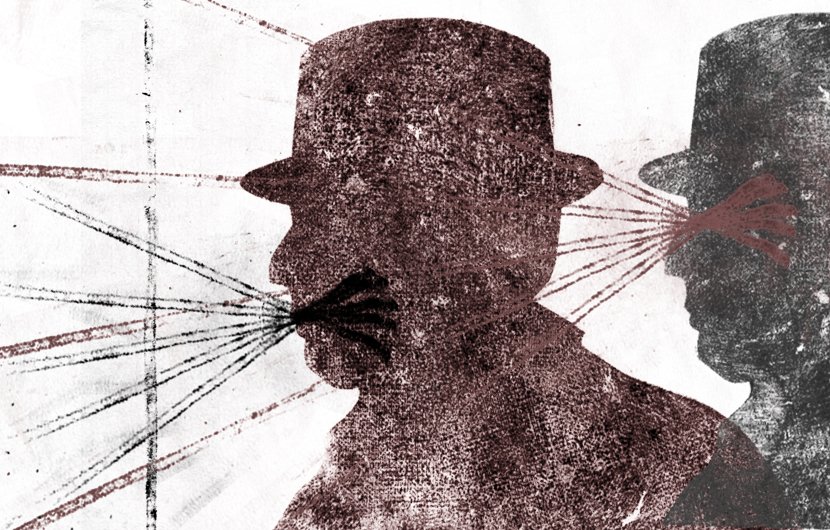
A good friend is with you to the end of...
There are many Inuit legends about the northern lights. Westerners,...

Traveling to Mars, and even colonizing the red planet, is...

The patient will wear a bracelet with a tag connected...

In critical times, it is fair to determine the relevance...

Its first 'boutique' in Barcelona will open on the ground...

“Offering this skill in Amazon Alexa allows us to provide...

Research data confirm that physical exercise inactivity is a serious...

The twin-cherry brand, originally established in Sitges in 1967 and...

From the Sociedad Catalana para el Alumbrado por Gas, founded...

Como bien nos recordaba Irene Vallejo en su Manifiesto por...

Música clásica sobre la arena de la playa en dos...

The first session of the cycle on the regatta organized...

The hospital's managing director, Manel del Castillo, and the pharmaceutical...

Generalitat y Ayuntamiento impulsarán dos equipamientos de 'Casa de les...

Leticia Beleta, director of Alexion Pharmaceuticals in Spain and Portugal,...

We all have a friend who never leaves the Gràcia...

Barcelona director opts for Best International Film with 'La sociedad...

The hotel and industrial sectors softened the market's decline last...

The technology company, with a workforce of 35 employees and...

On 22nd August 1939, Gombrowicz set foot on Argentina for the first time, ignoring that the Second World War would break out and leave him stranded in Buenos Aires for a quarter of a century. It was not until another day 22nd –April, 1963– when, on disembarking for a few hours in Barcelona, on the way to France, he would set foot on the Old Continent again. The following day he was in Cannes and “was running towards Paris on the Mistral train”. That April I had just turned 15 and was writing a diary, in fact, a collection of unsavoury and cold notes in telegraphic style –devoid of any literary temptation– about names and facts that were going through my life. In the morning of that 22nd of April when Gombrowicz set foot for the first and last time in a dull Barcelona, I wrote (as if everything there were a non-stop party): “I have been in a music festival. Los Pájaros Locos and Los Salvajes”.
One 22nd of October of 2001, before meeting the widow, Rita Gombrowicz, at the hotel Avenida Palace in Barcelona, I learned that it was the Pole who had narrated in his masterpiece, Diario (1953-1969), his brief presence in the city: “Today, day 22, I am in Barcelona. For a long time, I’ve known that double two is my lucky number. I also touched Argentinian soil on a 22nd (of August). ¡Welcome magic! (…) I arrived at the square host to the Columbus statue and glanced at the city, where I may settle down after my stay in Berlin…” During our conference of presentation of Ferdydurke in Barcelona, I asked Rita to give us further information and retrace her husband’s steps on the lower part of La Rambla. “Well, in fact, in all probability he never left the ship”, she said. Recently, was revealed and published in Paris’ Kronos, the other diary of Gombrowicz’s: the b-side, or rather the “low-key” parts of his masterpiece.
As regards diaries, Gombrowicz also seems to have subscribed to double two: the most popular one has a profound literary accent, and in it a powerful subjectivity is confirmed on every page through a made-up personality that never disfigures the author’s intimacy; the other, a newly-found Kronos, is dedicated to a collection of unsavoury and cold notes in telegraphic style –devoid of any literary temptation– about names and facts. At the time when, on the second tougher diary, devoid of frills, we get to the 22nd of April of 1963, the author unhinges with a cold –yet, I think, both lucid and persuasive– only note: “Barcelona. ¡Nothing!” Does any of its two newspapers tell the truth? And should they say it, which would be keener to expound it? ¿Literary, or the cold diary, without emotion? Bets are doubled.

On 22nd August 1939, Gombrowicz set foot on Argentina for the first time, ignoring that the Second World War would break out and leave him stranded in Buenos Aires for a quarter of a century. It was not until another day 22nd –April, 1963– when, on disembarking for a few hours in Barcelona, on the way to France, he would set foot on the Old Continent again. The following day he was in Cannes and “was running towards Paris on the Mistral train”. That April I had just turned 15 and was writing a diary, in fact, a collection of unsavoury and cold notes in telegraphic style –devoid of any literary temptation– about names and facts that were going through my life. In the morning of that 22nd of April when Gombrowicz set foot for the first and last time in a dull Barcelona, I wrote (as if everything there were a non-stop party): “I have been in a music festival. Los Pájaros Locos and Los Salvajes”.
One 22nd of October of 2001, before meeting the widow, Rita Gombrowicz, at the hotel Avenida Palace in Barcelona, I learned that it was the Pole who had narrated in his masterpiece, Diario (1953-1969), his brief presence in the city: “Today, day 22, I am in Barcelona. For a long time, I’ve known that double two is my lucky number. I also touched Argentinian soil on a 22nd (of August). ¡Welcome magic! (…) I arrived at the square host to the Columbus statue and glanced at the city, where I may settle down after my stay in Berlin…” During our conference of presentation of Ferdydurke in Barcelona, I asked Rita to give us further information and retrace her husband’s steps on the lower part of La Rambla. “Well, in fact, in all probability he never left the ship”, she said. Recently, was revealed and published in Paris’ Kronos, the other diary of Gombrowicz’s: the b-side, or rather the “low-key” parts of his masterpiece.
As regards diaries, Gombrowicz also seems to have subscribed to double two: the most popular one has a profound literary accent, and in it a powerful subjectivity is confirmed on every page through a made-up personality that never disfigures the author’s intimacy; the other, a newly-found Kronos, is dedicated to a collection of unsavoury and cold notes in telegraphic style –devoid of any literary temptation– about names and facts. At the time when, on the second tougher diary, devoid of frills, we get to the 22nd of April of 1963, the author unhinges with a cold –yet, I think, both lucid and persuasive– only note: “Barcelona. ¡Nothing!” Does any of its two newspapers tell the truth? And should they say it, which would be keener to expound it? ¿Literary, or the cold diary, without emotion? Bets are doubled.
